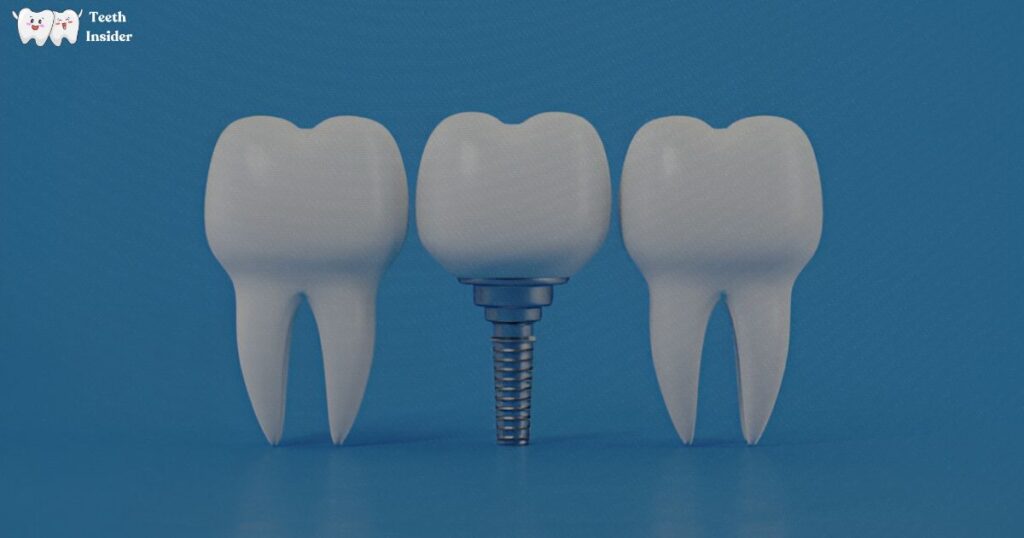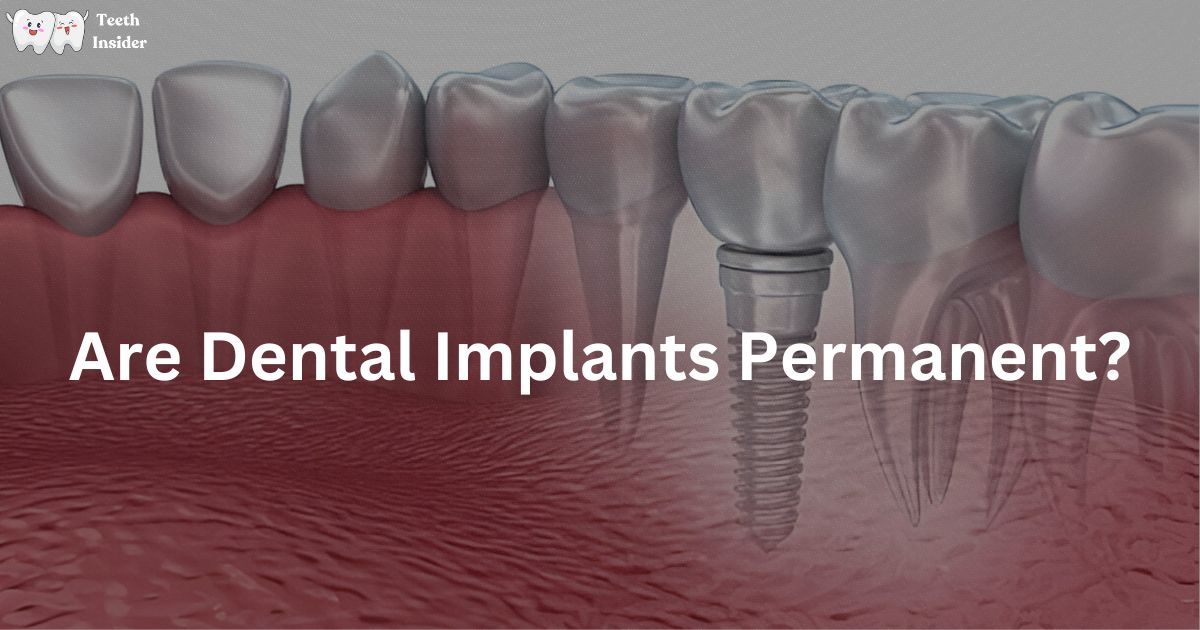Many people now choose dental implants to replace lost or broken teeth. Dentists recommend them. They say you’ll feel more comfortable, your smile will look natural, and you’ll feel confident again. However, a common query is whether Dental implants are actually permanent. In this article, we will talk about how long dental implants last. We will also look at the factors that affect their longevity. Lastly, we will explore ways to prevent them from fading over time.
Also Read: What Are Dental Implants? Types, procedures, and more

How Long Do Dental Implants Last?
The goal of dental implants is to offer a durable remedy for tooth loss. They can live for an astounding 20 to 30 years on average. It’s important to take care of your teeth for them to last a long time. This doesn’t only depend on the materials used.
The titanium ‘root’ of a dental implant blends in with your jawbone to resemble the root of a real tooth. A ceramic dental crown, which replaces the visible portion of the tooth, is perched atop this root. To make your dental implants last longer, take care of them just like your natural teeth. This entails routine dental checkups, daily cleanings, and frequent flossing.
Also Read: How Much are Dental Implants?
Elements Affecting the Lifespan of Dental Implants
The lifespan of dental implants can be affected by a number of factors. Understanding these factors is crucial for making good decisions about your oral health.
Oral Health: A good jawbone and healthy gums are needed for an easy implant process. It is imperative to treat any pre-existing gum disease prior to implant placement. It is still very important to take good care of your mouth. Plaque can harm your gums and other nearby tissues.
Lifestyle Choices: Smoking and drinking a lot can harm dental implants and make them last a shorter time. Nicotine slows down the healing process by limiting oxygen and blood flow. If you drink alcohol right after getting an implant, it can affect how your tissues heal and form clots.
Injury or Damage: Dental implants are durable, but eating hard or sticky food can still damage crowns. To protect dental implants, be gentle and avoid using them to open bottles or packages.
Medical Conditions: People who have weak immune systems or diabetes are more prone to getting infections. Additionally, their healing process may be slower. Effectively managing these conditions is essential to guaranteeing the success of dental implants.
Teeth Location: The kind and position of the missing tooth can also affect how long an implant lasts. The back teeth may decay faster since they are chewed on and compressed frequently.
Teeth Grinding (Bruxism): Bruxism is when you clench or grind your teeth. It can stress implants and natural teeth. In order to protect the implants, it is imperative that this condition be treated.

How to Take Care of Your Dental Implants
To make your dental implants last longer, follow these important maintenance guidelines.
Oral Hygiene: To keep your gums healthy and prevent plaque, brush your teeth twice a day and floss regularly.
Regular Check-ups: Don’t forget to schedule regular check-ups with your dentist for your implants. This helps address any problems quickly.
Healthy Lifestyle: To help your implants heal, quit smoking and drink less alcohol for a healthier lifestyle. And do Not used dairy products After Dental Implant.
Protect Your Teeth: Take care of your teeth by avoiding biting hard things or using your dental implants as tools.
Address Bruxism: If you grind your teeth, ask your dentist about using a mouthguard to protect your teeth and implants.
Also Read: What Are Dental Implants?
Conclusion
Regarding the inquiry, “Are dental implants permanent?” In short, they can replace lost or broken teeth if cared for properly. The effects may vary depending on your oral health, lifestyle, and medical conditions. To maintain a beautiful smile with dental implants, take good care of them and make wise choices.
Frequently Asked Questions (FAQs)
1. How can I make sure my dental implants last a long time?
Learn how to properly care for your dental implants and increase their lifespan.
2. Can I drink alcohol following dental implant placement?
Find out how long after implant surgery is the best time to drink alcohol to promote healing.
3. Are there any tooth replacement options besides dental implants?
Take a look at different Tooth replacement options and see which one suits your dental needs.
4. What possible side effects are connected to dental implant surgery?
Learn about issues that can happen in dental implant surgery and how to fix them.
5. If I have dental implants, how can I treat bruxism, or grinding of the teeth?
Discover effective techniques to protect dental implants and natural teeth from bruxism.

